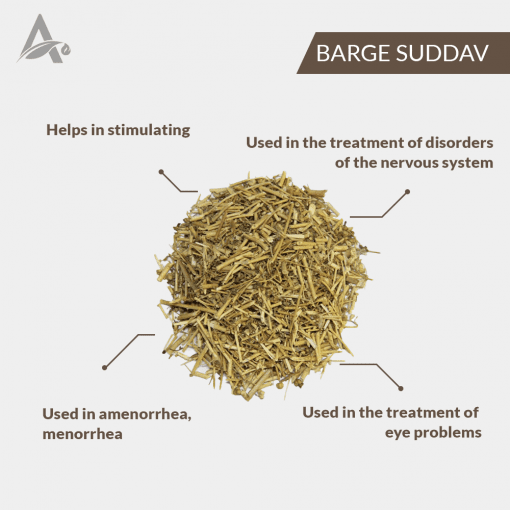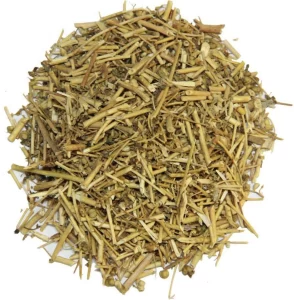
Introduction
Garden Rue, also known by its local names Barge Sadaab or Berge Suddaab, is a medicinal plant native to the Mediterranean region but is found across various parts of the world, particularly in Asia and Europe. It has been used for centuries in traditional medicine due to its potent health benefits. Known scientifically as Ruta graveolens, this herb belongs to the Rutaceae family and is prized for its aromatic and medicinal properties.
Forms of Garden Rue
Garden Rue can be consumed in various forms, each having unique applications for different health concerns:
- Dried Herb: The dried form of the plant is commonly used to make herbal teas or tinctures. These are the most traditional forms of consumption.
- Essential Oil: Extracted from the leaves and flowers of the plant, the essential oil is widely used in aromatherapy and topical applications.
- Tinctures: These concentrated liquid extracts of Garden Rue are used for medicinal purposes. They can be taken in small doses to promote health benefits.
- Powder: Garden Rue powder is sometimes added to capsules or mixed into other herbs for internal use.
- Topical Ointments: Creams or ointments containing Garden Rue may be applied to the skin for its anti-inflammatory and pain-relieving properties.
Benefits of Garden Rue
Garden Rue has been valued in herbal medicine for its numerous therapeutic properties. Some of the most notable benefits include:

- Anti-inflammatory: Garden Rue has potent anti-inflammatory properties, making it effective in reducing swelling and pain in conditions like arthritis and muscle strains.
- Digestive Health: It has been traditionally used to aid digestion, reduce bloating, and relieve symptoms of indigestion or constipation.
- Antimicrobial and Antifungal: The plant has natural antimicrobial and antifungal properties, helping in the treatment of skin infections and certain bacterial infections.
- Mood Enhancer: Garden Rue has been known to alleviate stress and anxiety, improving overall mood. It acts as a mild sedative, promoting relaxation and restful sleep.
- Menstrual Relief: Garden Rue has been used to help regulate menstrual cycles and reduce the severity of menstrual cramps. It can also be used as an emmenagogue to stimulate menstruation in cases of delayed or absent periods.
- Anti-cancer Potential: Some studies suggest that Garden Rue contains compounds that may help combat cancer cells. Although research is still in its early stages, it shows promise as a potential cancer-fighting herb.
- Pain Relief: Garden Rue has been used in traditional medicine to treat headaches, menstrual pain, and muscle aches due to its analgesic (pain-relieving) properties.
Side Effects and Precautions
Despite its many benefits, Garden Rue can cause some side effects, particularly when consumed in large quantities or used improperly. Some of the potential side effects include:

- Skin Irritation: The plant’s essential oil can cause skin irritation, particularly in individuals with sensitive skin. Direct contact with the fresh plant may also cause a rash or burn sensation.
- Gastrointestinal Distress: Overconsumption of Garden Rue can lead to digestive issues such as nausea, vomiting, and stomach cramps. It is essential to consume it in moderation and under the guidance of a healthcare provider.
- Toxicity: Large doses of Garden Rue, especially in concentrated forms, can be toxic. Symptoms of toxicity include nausea, vomiting, dizziness, and even more severe effects like convulsions or organ damage. It is crucial to avoid self-medication with high doses.
- Pregnancy and Breastfeeding: Garden Rue is considered unsafe during pregnancy as it may cause uterine contractions that could lead to miscarriage. It is also not recommended for breastfeeding mothers without the advice of a healthcare professional.
- Allergic Reactions: Some individuals may be allergic to Garden Rue, resulting in symptoms such as skin rashes, hives, or breathing difficulties. A patch test for topical application is recommended before use.
- Interaction with Medications: Garden Rue may interact with certain medications, particularly those affecting blood pressure or blood clotting. It may enhance the effects of sedatives and should be used cautiously with other sedative medications.
This Article is for Basic Information. Contact a professional doctor before using it.
HAKEEM KARAMAT ULLAH
+923090560000




